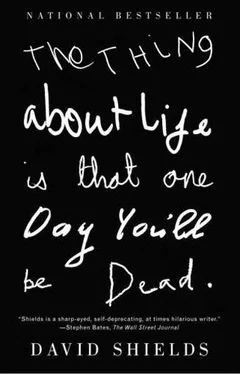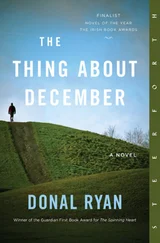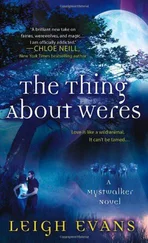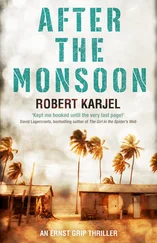Children’s fingernails grow one millimeter a week. Toenails grow one-quarter as fast as fingernails—one millimeter a month. Pianists’ and typists’ fingernails grow faster than others’. Fingernail growth is fastest in November, slowest in July, and less rapid at night. The first and fifth digits grow more slowly; in severe cold weather, fingernails grow more slowly. From age 30 until 80, fingernail growth slows by 50 percent. Contrary to myth, Dad, your nails and hair don’t keep growing after you die.
The XX and XY chromosome pairings create females and males, respectively. Females have an advantage in having two X chromosomes to rely on throughout life, because the second X chromosome provides a backup if something goes wrong with a gene on the first one. A female with a disease-carrying gene on one of her X chromosomes can use the normal gene on the other X chromosome and avoid the expression of the disease, though she still carries the gene.
Female is the “default” sex: if you don’t get a signal to form testes, your germ cells form ovaries and you become female. It takes the positive action of genes on the Y chromosome to make a potentially female body into a male body.
Women have a slower metabolism than men, beginning at conception: male embryos divide faster than female ones. The faster metabolic rate makes men’s cells more vulnerable to breakdown; the entire male life cycle is completed more promptly than the female one.
Y-bearing sperm travel a little faster than X-bearing sperm; about 51 percent of newborn babies are male. Even more than 51 percent of conceptions are male, but male fetuses are more likely to undergo spontaneous abortions, stillbirths, and miscarriages than females. Premature girls tend to fare better than premature boys do. More boys than girls die in infancy.
Despite their slower metabolism, girls, at birth, are more advanced in bone development than boys. By the time they start school, girls are ahead of boys by approximately one year, and by third grade they’re one and a half years advanced.
Until I was 9, I was the fastest person I knew. I ran to the store, around the block, to school, up the stairs, away from people, with people, toward people, on dirt, on sand, on asphalt, on the beach, in bare feet, in sneakers, in sandals, in boots, in good thin tight shiny laced black shoes. I had no hair on my legs, had legs hard as rubber, tanned as an Indian. My girlfriend was 9 and ran, too. We ran together. We raced, and she won; I thought she got a false start and demanded a rematch. She said no. I took off my sneakers, threw them into the lake, stepped on twigs, rocks, glass in my bare feet. She ran away from me. A few years later she started smoking cigarettes, lost her wind, and became a cheerleader.
Holding on to the plastic strap that was attached to my rocking horse’s ears and mouth (name: Peaches; it was peach-colored and I liked peaches), I hoisted myself onto the saddle and wriggled around in my pajamas until I was comfortable and ready to ride. One cracked glass eye shone out of the right side of his head, the left eye having shattered in a previous skirmish, and his mouth, once bright red and smiling, was now chipped away to a tight-lipped and unpainted pout. His nose, too, was bruised, with gashes for nostrils, and he had a thick brown mane that, extending from the crown of his head nearly to his waist, was made from my grandmother’s discarded wigs and glued to the wood. I pulled on the plastic strap that served as the rein, wrapped it around my fist, and slid my feet into the leather stirrups that hung from his waist.
I bounced up and down and set him in motion, rocking, tilting, sliding. The runner skidded slightly on the wooden floor. I sat up, leaning forward, pressing my lips to the back of his hairy neck, and said, “Don’t creak. Don’t make noise.” (Infantile, naïve, I thought I could talk to wooden animals.) I wrapped my arms around his neck and kicked my legs back and forth in the stirrups, then lay my cheek against the back of his head, pressing myself to his curves and carved-out shapes. When he pitched forward, I scooted up toward the bottom of his spine, and when he swung back, I let go of the leather strap and leaned back as far as I could so that I was causing his motions at the same time I was trying to get in perfect rhythm with them. I twisted my hips and bounced my thighs until it felt warm under me. My pajamas itched and stuck to my legs. My skin felt wet. No one knew; no one could know. I knew it was private, but I didn’t know why. Forgetting that I should have been in bed and, if not under the covers, at least not creating such a commotion, I rocked faster, drove him across the floor and toward the far wall by jerking my body forward in the seat and squeezing my knees into his sides.
When my father opened the door and turned on the light, I turned Peaches away from him and the runner glanced off his foot. It felt warm under me and I wasn’t going to stop. “Giddyup.”
“Daver Baver,” my father said, clearly amused by my equestrianship but attempting to embody the law. Such is my memory, anyway; who knows how accurate these recollections are? I was 4, maybe 5. “Your mother and sister are trying to sleep. I was trying to sleep. You’ll wake up the house.”
“I’ll be quiet, Daddy.”
“You need to get back in bed, Daver B.”
“But I’m not tired.”
“Do you have any idea what time—”
“It feels so good.”
Each time Peaches rocked forward, I bumped my crotch up against the smooth surface of the seat and my whole body tingled. I clutched my horse and made him lurch crazily away from my father and toward the wall. I bucked back and forth until it hurt and I couldn’t ride any longer. My dad brought Peaches to a halt from behind, picked me up by the waist, and twirled me round and round the room—Airplane!—then brought me down, tossing me onto the bed. Whee. Then he sang me to sleep with my favorite song, about a boy and his daddy and a mockingbird.
I have a recurring dream in which I open the front door to my childhood home, and my father has a slanted block of wood, the door stop, in his hand. Without his glasses, in the unlit hallway, he thinks I’m a burglar. He’s going to stop me with a 3"-by-5" piece of wood. He squeezes the wood and gets a sliver in his palm, dropping the door stop on his shoes. (Dad as unlikely Cerberus.)
It’s good to see you, Father, I say, although I’ve never in my life called him “Father.”
There’s no light on in the house. It’s 4:00 in February and I want a lamp, a candle, or a fire to take the cold off the walls and out of the wooden floors. The windows are shut and the shades are drawn.
Don’t track dirty snow into the house, he says. Go shake your shoes off outside. (Suddenly my dad is Martha Stewart? So, too, growing up in California, I didn’t see snow until I went East to college.)
Random walls of snowdrifts rise out of the field, and in the dismal sun the trees reflect onto the snow like huge, broken umbrellas. The wind sweeps the snow off the ground, through the trees, and against the windows of the house.
In the living room, he rocks in his chair, with his feet on the stool. His hands are folded in his lap—a semi-feminine figure. He opens his mouth, but no words come out. Newspapers (containing articles he’s written? I think so) are scattered across the floor. I sit away from him on the springs of a couch without cushions.
Under the glass tabletop next to him is a black-and-white picture of him hiking in the mountains with a walking stick in one hand, a pipe in the other. In the photograph, he is carrying a backpack and is half-turned toward the camera; in the photo, sunlight glamorizes his face. (The High Sierras: mountains of such magic importance to my childhood as to be commensurate with aboriginal promises of beauty and peace; jagged pinnacles far, far away, but so omnipresently in the mind.)
Читать дальше












